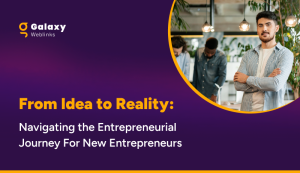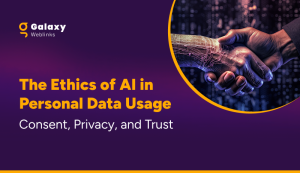Forget the bootstrapping blues and one-man-band days. In 2024, smart startups will unlock explosive growth by tapping into the global talent pool through strategic outsourcing. It’s not just about cutting costs anymore; it’s about accessing niche expertise, scaling operations like never before, and igniting innovation. But navigating this dynamic landscape can be tricky. Worry not, intrepid startup owner, for we’ve got your roadmap to success. Buckle up, as we unveil 5 data-driven predictions and actionable strategies to help you conquer the frontier of global talent engagement:
1. Hyper-Specialization: Sharper Skills, Faster Results
A recent Clutch study paints a clear picture: nearly half of businesses plan to boost their outsourcing budget in 2024. But instead of a scattergun approach, the trend is towards laser-focused hyper-specialization. Think of it like this: you wouldn’t trust your brain surgery to a general practitioner, would you? The same applies to your startup’s needs. Ditch the one-size-fits-all agencies and seek out niche wizards: the coding alchemists who craft AI marvels, the branding gurus who sculpt killer narratives. Platforms like Upwork Pro can be your talent compass, helping you find top-rated experts with laser-honed skills. This ensures sharper results, faster turnaround times, and maximized ROI for your unique startup needs.
Just like Zapier, the automation powerhouse, built their empire by outsourcing development tasks to niche experts around the globe. By focusing on hyper-specialization, you too can free your in-house team to focus on innovation and conquer your market.
2. Remote Revolution: Unleashing Global Agility
Upwork’s data paints a clear picture: remote job postings surged by 37% in 2023, and this trend shows no signs of slowing down in 2024. This isn’t just a fad; it’s a paradigm shift. Imagine tapping into a talent pool unbound by borders, where location no longer dictates access to skilled minds. Think Icelandic coding wizards crafting your fintech app or Brazilian designers breathing life into your brand. The possibilities are as endless as the global talent itself.
Platforms like Slack and Zoom become your communication lifeblood, fostering seamless collaboration despite time zones. Project management software like Asana keeps everyone on the same page, regardless of location. Remember, cultural diversity breeds fresh perspectives and innovation, giving your startup the edge in today’s competitive landscape.
But managing remote teams across cultures can be tricky. Time zone differences and cultural nuances can hinder progress. Platforms with cultural training modules and open communication channels can bridge these gaps, ensuring smooth sailing in your global collaboration journey.
3. AI & Automation: Sidekicks, Not Replacements
A McKinsey & Company report paints a future where AI could automate up to 800 million jobs by 2030. But fear not, human workers! AI and automation are here to be your tireless sidekicks, handling repetitive tasks like data entry or basic coding. Think of them as freeing up your team’s bandwidth for higher-level work, like crafting the next big marketing campaign or developing your groundbreaking product.
Identify those repetitive tasks within your startup that can be automated. Explore AI tools like Zapier or Integromat to streamline workflows and unleash your team’s hidden potential. Remember, AI is your partner in progress, not your competitor.
4. Security Spotlight: Building Trust in the Digital Age
With data breaches becoming a daily headline, security will be paramount in 2024. Expect stricter regulations, increased emphasis on data privacy, and a growing demand for secure platforms and communication channels. As a startup, this means prioritizing data security in your outsourcing partnerships.
Before partnering with any provider, conduct thorough security audits and background checks. Ensure they comply with relevant data privacy regulations like GDPR and CCPA, and have a transparent data security policy in place. Don’t hesitate to ask tough questions about their security measures and data protection protocols. Trust is your most valuable asset, both online and offline.
5. Ethical Outsourcing: The Moral Compass for Sustainable Growth
Consumers are increasingly aware of the human cost behind products and services. In 2024, startups that prioritize ethical outsourcing will stand out from the crowd, gaining consumer loyalty and building a sustainable future. This means ensuring fair wages, safe working conditions, and respect for workers’ rights in your partnerships.
Research the labor practices and working conditions of potential outsourcing partners. Look for certifications like Fair Trade or B Lab that demonstrate their commitment to ethical sourcing and social responsibility. Choose partners who share your values and treat their workers with respect. Remember, sustainability isn’t just a buzzword; it’s good business. By prioritizing ethical practices, you build trust with your customers, attract top talent, and create a positive impact on the world.
Conquering the Future with Outsourcing:
By embracing these 5 data-fueled strategies, you can transform outsourcing from a cost-cutting tactic into a strategic weapon for growth. Remember, the world is your oyster, and with the right approach, you can leverage the global talent pool to propel your startup to new heights in 2024 and beyond.
Bonus Checklist:
- Hyper-Specialization: Identify 3-5 specific skills or needs your startup requires and search for niche experts in those areas.
- Remote Revolution: Explore platforms like Upwork Pro, Fiverr Business, and Toptal for finding top-rated remote talent.
- AI & Automation: Look for tools like Zapier, Integromat, and Autopilot to automate repetitive tasks and streamline workflows.
- Security Spotlight: Conduct thorough security audits and background checks of potential outsourcing partners.
- Ethical Outsourcing: Partner with companies that have proven track records of fair wages, safe working conditions, and social responsibility.
Open the Global Talent Vault: Unlock Unlimited Potential with Galaxy Weblinks
As the startup landscape reshapes in 2024, one thing remains constant: your vision will only soar as high as the talent you fuel it with. By embracing these 5 data-driven strategies, you’ve discovered the blueprint for unlocking a global talent pool of niche experts, remote wizards, and ethical partners who can propel your startup to unprecedented heights. Remember, the world is your oyster, and with the right approach, you can crack it open and unleash the pearls of growth waiting within.
Ready to navigate the exhilarating frontiers of global talent engagement? At Galaxy Weblinks, we’re your expert cartographers, ready to equip you with the tools, resources, and insights to build your dream team across borders. Explore our curated talent pools, cutting-edge technology platforms, and comprehensive security solutions. Let us be your trusted guide as you chart your course to startup success in 2024 and beyond.



